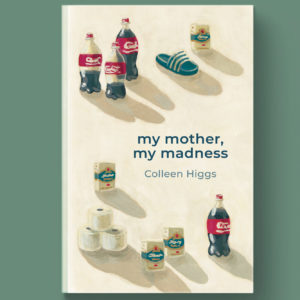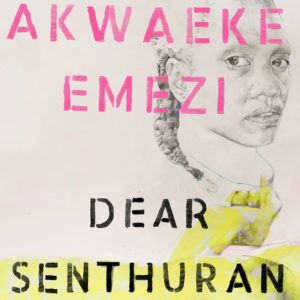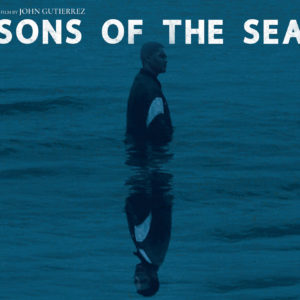Karen Jennings’ ship comes home at last
The Booker Prize longlist nominee homes in on the violence of colonialism and its afterlives in An Island, a novel about a lone lighthouse keeper confronted by a refugee who washes ashore.
Author:
20 August 2021

The novelist Karen Jennings had just returned from walking the dogs at 7am when she was surprised by an email from her UK-based indie publisher, Holland House Books. Her disturbing and powerful novel, An Island, (co-published with Karavan Press in Cape Town) had been longlisted for the 2021 Booker Prize alongside Nobel laureate Kazuo Ishiguro (Klara and the Sun), Pulitzer Prize-winner Richard Powers (Bewilderment) and other literary heavyweights.
In an interview with The Guardian, Jennings admitted to being taken aback by the news. She had not only struggled to find a home for An Island, but the book had also been widely ignored by reviewers. “I finished the novel in 2017. And no one was interested,” she said. “When I did finally get a small publisher in the UK and a small publisher in South Africa to co-publish, they couldn’t get anyone to review the book. We couldn’t get people to write endorsement quotes, or blurbs.” (The Karavan Press edition does have a cover shout from the writer and literary scholar Elleke Boehmer).
Speaking via email from São Paulo, Brazil, where she lives with her husband and mother-in-law, Jennings said she’s had little time to reflect on what the Booker Prize nomination means for her personally. One thing she does know, however, “is that small publishers, like the ones that have published me, are getting some recognition for the risks that they take in publishing books that the mainstream publishing houses simply won’t give a chance to”.
Related article:
The question of how unevenly power is distributed in publishing – who decides which authors are published, which books are celebrated and which titles are allowed to vanish from the shelves – is a subject Jennings returns to when asked about her involvement with Writivism and Short Story Day Africa, mentorship programmes that promote and nurture literary voices on the continent. “We don’t need to wait for people from other countries to tell us which African author is worth reading,” she said. “No one would wait for a Zimbabwean writer to decide who is the best Irish writer.”
In other words, it cannot be left to gatekeepers in London or New York to determine which voices from the continent are worth celebrating. “I feel very strongly that Africans have stories to tell and that they must be given the opportunities to do so,” Jennings said. “And those opportunities really need to come from within the continent to have real meaning.”
A writer’s life
An Island is an engrossingly bleak novel and Jennings’ sixth book. Her other writing projects include Finding Soutbek (2012), her debut novel set in an impoverished fishing town on the West Coast; a collection of short fiction, Away from the Dead (2014); and a poetry volume, Space Inhabited by Echoes (2018). “I can’t say for sure when I knew that I wanted to be a writer, but I was young,” Jennings said. “Perhaps six or seven.”
She was born in October 1982 in Kenilworth, Cape Town, to parents who both worked as school teachers. Jennings’ mother, an Afrikaans teacher, used to give her and her sister old notebooks to scribble in, and she wrote her first poem in one of those. And although Jennings speaks with fervour about writers and writing from the continent, her early reading life was angled in a different direction.
“We really weren’t exposed to much South African literature (and not any African literature) at school – other than poetry,” Jennings said of her time at the Wynberg Girls’ schools in Cape Town. Instead, she remembers walking around with leatherbound editions of William Shakespeare in her blazer pocket and spending hours reading Thomas Hardy, Charles Dickens, Jane Austen and the Brontë sisters. “Basically,” she said, “I didn’t feel at home in the 20th century.”
Related article:
Jennings’ horizons broadened to include literature from South Africa and the rest of the continent, the Americas, Australia and more the moment she arrived at the University of Cape Town. She holds master’s degrees in both English literature (her dissertation looked at the role of women in JM Coetzee’s fiction) and creative writing from the university.
“I chose to do an MA in creative writing because at the time I believed it was the only way that I would be able to write a novel. That I needed the guidance of someone else,” Jennings said. “In the end, I learned that I could do it myself.” She then went on to study for a PhD at the University of KwaZulu-Natal, an experience that was made more difficult by the death of her father from cancer.
“My PhD is actually in English literature, but I was permitted to write a creative piece and a thesis, so in effect, it is like a traditional PhD in creative writing,” she said. “The experience was difficult because I started out with an idea for a novel, but then my father passed away and I realised that I wanted to write a memoir about him. It was a challenge to face that grief and emotion and the complexities of our relationship every day as I wrote. I am glad that I did it though.” Travels with my Father (2016), an autobiographical novel meditating on questions of grief, loss and love, is the book that emerged from this experience.
Considering violence
The violence of colonialism and its grotesque afterlives is a theme that threads through An Island and it is impossible to read the opening passage without the mind flashing back to the haunting image of Alan Kurdi, the three-year-old Syrian refugee lying face-down on a beach. Jennings’ protagonist is a 70-year-old lighthouse keeper named Samuel who lives alone on a remote, unnamed island off the African continent, and every so often, a dead body or bodies wash up on the pebbled shore.
In police procedurals like CSI or Criminal Minds, a dead body functions as a plot device, a switch that kick-starts the hunt for the killer. Jennings’ novel rises above that. The bodies that wash up on the island point to the violence of the social world and not the designs of a single criminal mind.
“There had been 32 of these washed-up corpses during the 23 years that he had been the lighthouse keeper,” Jennings writes. “All 32 nameless, unclaimed.” Only this time, the body – male, Black – that washes up on the island is alive. Barely, but alive. Samuel grudgingly takes the young man in, hoping that he will soon be dead, and that he can return to living alone without the burden of sharing the future. Jennings’ eerie, slow-burn of a novel unfolds over four days on the island, interspersed with flashbacks from Samuel’s early life on the mainland: the violence of colonial land displacement, the struggle for independence, the dictatorship that came after and his long political detention.
Related article:
Jennings said the spark for the novel came to her in a dream while she was at a writer’s residency in Denmark. “At the time there had been a great deal in the news about the Syrian refugee crisis, a lot of pity and sympathy, as well as a huge amount of xenophobia,” Jennings said. “At the same time there were boatloads of African refugees drowning or being turned away from countries in Europe.” And in the dream, Jennings saw a solitary figure defending an island. “This vision sparked various thoughts regarding the terrible xenophobic riots we have seen in South Africa, about the nationalism and racism that we see in Africa. I wanted to understand what it is that drives people to violence and hatred.”
Samuel cannot speak the refugee-stranger’s language and his mind is filled with “falsehoods and fear” that even a well-meaning gesture becomes threatening. It’s inevitable that the novel will come to a terrifying end. “I felt that in letting the narrative take place in a small, unnamed place, reduced to mainly two characters, that the very complex issues would be highlighted and could more clearly be explored,” Jennings said. She has written a dark and disturbing fable about our times that will stay with you long after you’ve turned the last page.



